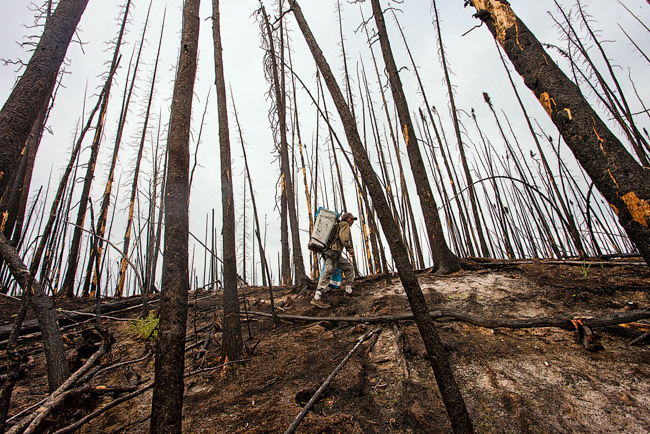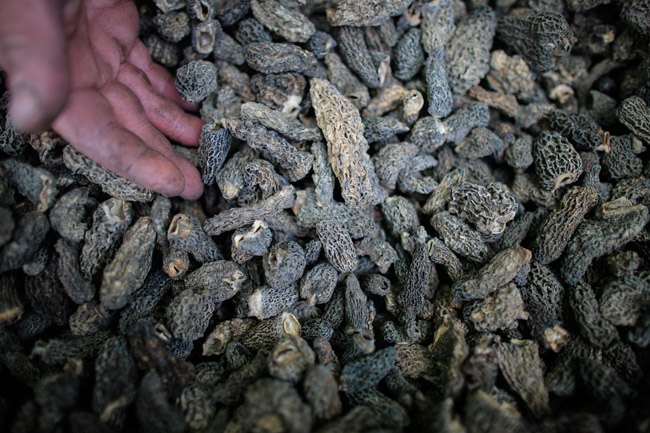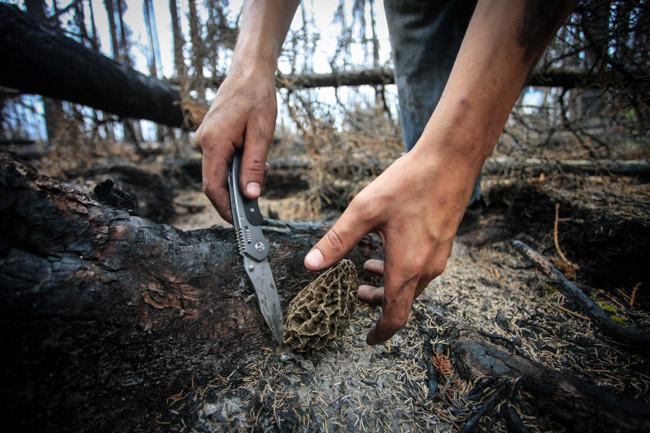BY: ROB HOFFMAN
The Yukon has always captivated our imaginations, both with visions of the untamed wild and a market of untapped resources leading thousands each year into a treasure hunt on the prophetic heels of the late 1800s. However, it is no longer gold or minerals that are sought out in the Great North. Little shanty camps have materialized up and down across the Robert Campbell highway, housing thousands—from Europe and North America alike—across the charred and desolate rubble of post-wildfire Yukon.
Welcome to the mushroom rush.
A year after a wildfire takes place, a resilient species of gourmet mushroom called “morels” grows from the ashes of Yukon’s boreal forests. A 2013 wildfire in Carmacks has marked the location of this passing year’s mushroom hunt.

SEE ALSO: Did You Know You Can Grow Mushrooms in Coffee Grounds?
Despite a season, which only spans about a month, pickers are paid $12 a pound for morels, twice the amount they usually pay out. A veteran picker can harvest up to 80 pounds of mushrooms a day ($960/day). The actual retail price for dried morels goes for over $100 a pound. On average, a mushroom picker will bring in between $400 – $500 per day. A month of sweat and toil in the Yukon could easily support five months work-free and feet up. With proper financial management an expert picker may be able to retire for the rest of the year.

One problem, however, is the trespassing and ineffective garbage disposal on First Nations’ land. Ed Schultz, executive director of Yukon’s First Nations, claims everyone is making a mess. “They’re not very diligent about picking up after themselves and they’re leaving garbage all over the countryside,” he tells CBC. Chief Eric Fairclough of the Little Salmon/Carmacks First Nation is also pushing for more regulation, greater safety measures and proper facilities. Currently, trees are being harvested for firewood, trails are getting cut down and garbage is being irresponsibly disposed. As of tradition, it seems that the Native peoples are subject to the shit end of the stick, due to the monetary interests of foreign migrants.

Yukon prospecting—minerals and mushrooms alike—has always made for unpredictable work. Still, there is sacredness to these charred boreal forests, the promise of adventure in a long romanticized land where hard work immediately translates into wealth. When you live in a tent far from the allure of commercial society, the majority of your income goes straight to pocket. Yet, whether that number is $150 or $950 per day, the heart of mushroom picking—or Yukon prospecting in general—has never solely belonged to finance.
Sources
Image 1, Image 2, Image 3, Image 4
Photos by Simon Hayter


